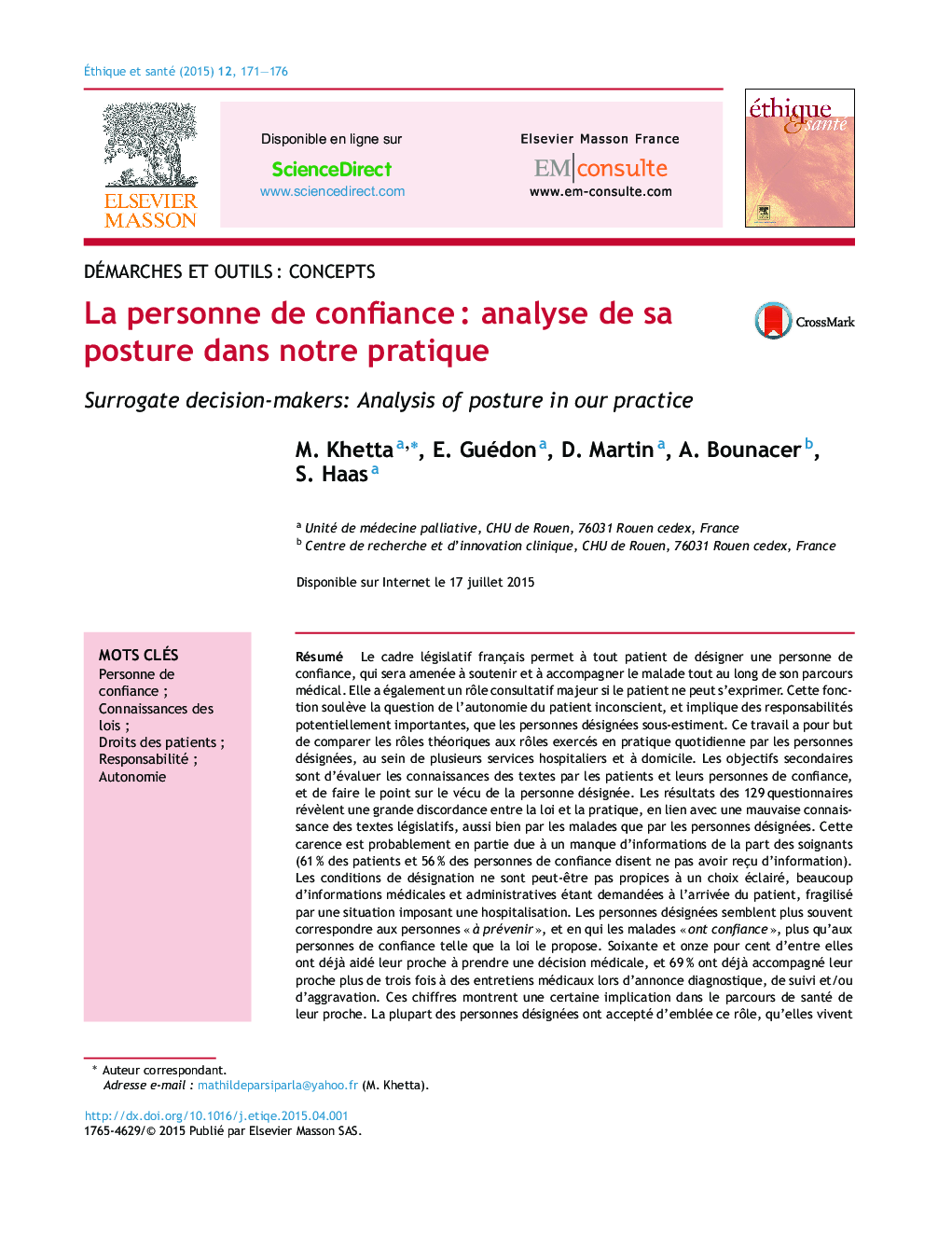| کد مقاله | کد نشریه | سال انتشار | مقاله انگلیسی | نسخه تمام متن |
|---|---|---|---|---|
| 1072467 | 949731 | 2015 | 6 صفحه PDF | دانلود رایگان |
عنوان انگلیسی مقاله ISI
La personne de confiance : analyse de sa posture dans notre pratique
دانلود مقاله + سفارش ترجمه
دانلود مقاله ISI انگلیسی
رایگان برای ایرانیان
کلمات کلیدی
موضوعات مرتبط
علوم پزشکی و سلامت
پزشکی و دندانپزشکی
سیاست های بهداشت و سلامت عمومی
پیش نمایش صفحه اول مقاله

چکیده انگلیسی
French law allows all patients to choose a surrogate decision-maker, who will support and accompany him/her throughout his/her medical pathway. The surrogate decision-maker plays a very important consultative role when a patient is unable to communicate directly. This function raises the question of an unconscious patient's autonomy and implies potentially important responsibilities that appointed persons underestimate. The aim of this study was to compare theory with practice in a context of different hospital departments and in a home environment. Secondary aims were to evaluate the patient's and surrogate decision maker's knowledge of laws, and to analyze their real-life experience. The results of the 129Â questionnaires revealed important discrepancies between the law and reality, due to patients' and surrogate decision-makers' unfamiliarity with the legal text. This is probably in part attributable to the lack of knowledge of medical staff, patients and surrogate decision-makers. Conditions for designation may not be suitable for making the right choice: patients weakened by disease are asked many administrative and medical questions at the beginning of hospitalisation. The person appointed as surrogate decision-maker is often considered as the “person to be informed” or “the person the patient trusts”, rather than the surrogate decision-maker as intented by law. In practice, 71% of surrogate decision-makers have already helped their close relatives to make a medical decision. Furthermore, 69% have already accompanied their close relatives to outpatient consultation more than 3Â times. Even though they are directly and willingly involved in the patient's healthcare, the notion of responsibility regarding surrogate decision-maker status remains unclear. Yet, advances in medicine create complex situations and reinforce their role. Improved application of the law is necessary to better accompany and support all patients in need of a surrogate decision-maker. Finally, the problem remains the same with advance directives as only three of the patients interviewed had written down these advance directives.
ناشر
Database: Elsevier - ScienceDirect (ساینس دایرکت)
Journal: Ãthique & Santé - Volume 12, Issue 3, September 2015, Pages 171-176
Journal: Ãthique & Santé - Volume 12, Issue 3, September 2015, Pages 171-176
نویسندگان
M. Khetta, E. Guédon, D. Martin, A. Bounacer, S. Haas,